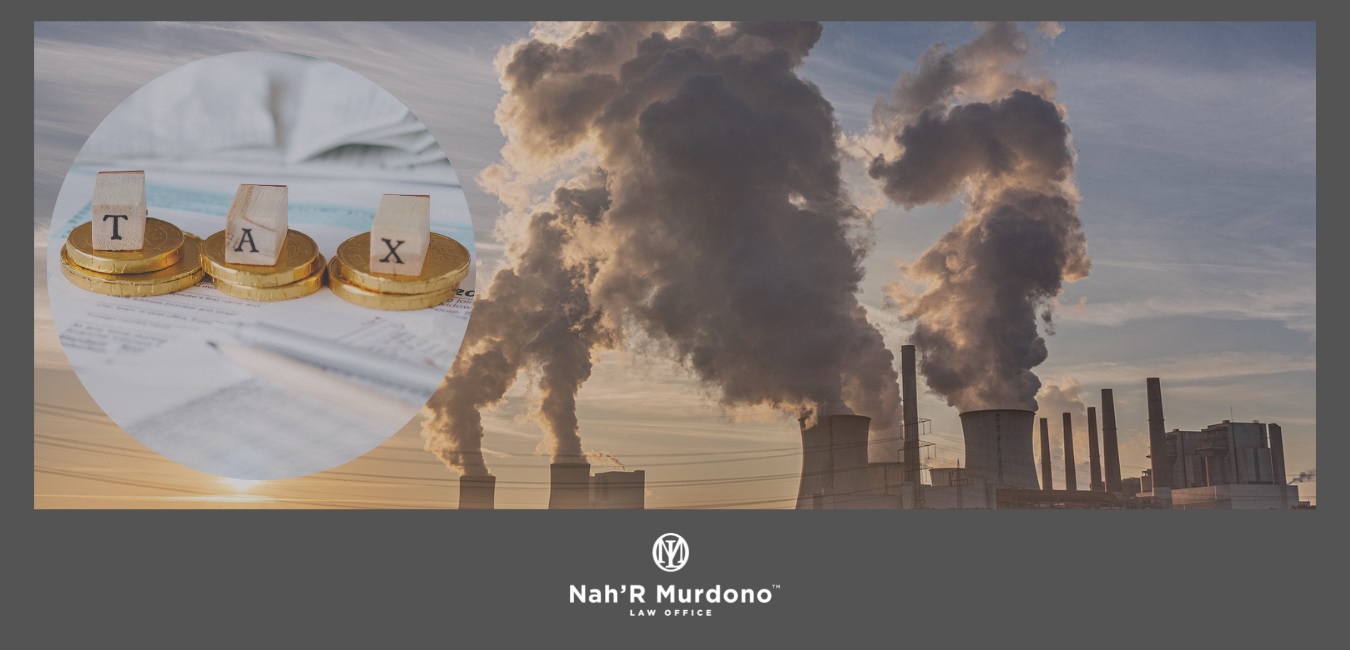Download Article
Impact of Harmonization of Tax Regulations on the Climate Change Crisis
I. Background
More than ever, Indonesian government is very serious about its commitment to controlling the climate change crisis, one of its latest efforts is to introduce a carbon emission tax policy. This certainly increases the hope that renewable energy can develop faster and be competitive with fossil energy. The main objective of the carbon tax is to reduce emissions nationally and encourage a shift to environmentally friendly renewable energy. This is in line with the Government’s efforts to achieve the target of reducing greenhouse gas emissions by 29% on its own and 41% with international support by 2030. This carbon tax policy was introduced through Law Number 7 of 2021 concerning Harmonization of Tax Regulations promulgated on October 29, 2021, commonly known as UU HPP (UU 7/2021).
II. Key Points
A carbon tax is imposed on carbon emissions that have a negative impact on the environment. The subject of the carbon tax is either an individual or entity that purchases goods which contain carbon and/or carries out activities that produce carbon emissions. A carbon tax is payable on the purchase of carbon-containing goods or activities that produce a certain amount of carbon emissions in a certain period. The carbon tax is 4determined payable when:
(a) purchase of carbon-containing goods;
(b) the end of the calendar year period of the activity that produces a certain amount of carbon emissions; or
(c) other times that regulated by or based on Government Regulations. For carbon tax rates set higher or, equal to the carbon price in the carbon market per kilogram.
In the event that the carbon price in the carbon market is lower than IDR 30 (thirty rupiah) per kilogram of carbon dioxide equivalent (CO2e) or any equivalent unit, the carbon tax rate is set at a minimum of IDR 30 (thirty rupiah) per kilogram. kilograms of carbon dioxide equivalent (CO2e) or any equivalent units.
The imposition of a carbon tax is carried out by taking into account the carbon tax roadmap, and/or the carbon market roadmap. The carbon roadmap in question contains strategies for reducing carbon emissions, priority sector targets, alignment with new and renewable energy development, and/or alignment between various other policies.
The carbon tax roadmap policy is set by the government with the approval of the Indonesian House of Representatives (DPR).
In view of its objectives as stated in the Background section, Law 7/2021 also confirms in Articles 13 paragraph (12) that revenues from carbon taxes can be allocated for climate control. For this reason, in addition to the imposition of obligations, Law 7/2021 also provides incentives in which it regulates that taxpayers who participate in carbon emission trading, carbon emission offsets, and/or other mechanisms in accordance with laws and regulations in the environmental sector can be given:
(a) a reduction of carbon tax; and/or
(b) other treatment for fulfilling carbon tax obligations.
III. Effect
Based on public information, as an initial stage the carbon tax will be applied to the Coal Fire Steam Power Plant (CFSPP) sector on 1 April 2022 using a tax mechanism based on the emission limit (cap and tax). With the imposition of this carbon tax obligation, it may have an impact on the commercial side, especially in the ongoing Power Purchase Agreement. This is an one of important matters that need further discussion between the electricity developer and PLN.
Furthermore, the Government plans in 2025 and beyond, the full implementation of carbon trading and the expansion of the carbon tax taxation sector in stages according to the readiness of the relevant sectors by taking into account, among other things, economic conditions, readiness of actors, impacts, and/or scale.
IV. Closing
Law 7/2021 states that the provisions regarding:
(a) procedures for calculating, collecting, paying or transferring, reporting and mechanisms for imposing carbon taxes; and
(b) procedures for reducing carbon tax as referred to in Article 13 Paragraph (13) and/or other treatment for fulfilling carbon tax obligations, will be regulated by a Regulation of the Minister of Finance.
Meanwhile, provisions regarding the subject of carbon tax and/or allocation of revenue from carbon tax for climate change control will be regulated by or based on a Government Regulation after being submitted by the Government to the Council as agreed in the preparation of the Draft State Revenue and Expenditure Budget.
The implementation of the rights and fulfillment of tax obligations related to the carbon tax is carried out in accordance with the provisions of the legislation in the field of general provisions and taxation procedures.
This publication is intended for informational purposes only and does not constitute legal advice for specific issues, transactions, or matters. Any reliance on the material contained herein is at the reader’s own risk. Any process may reproduce no part of this publication without prior written permission MLO.





